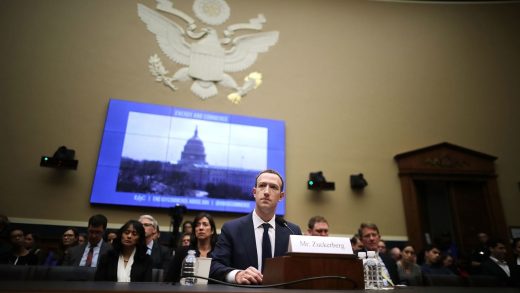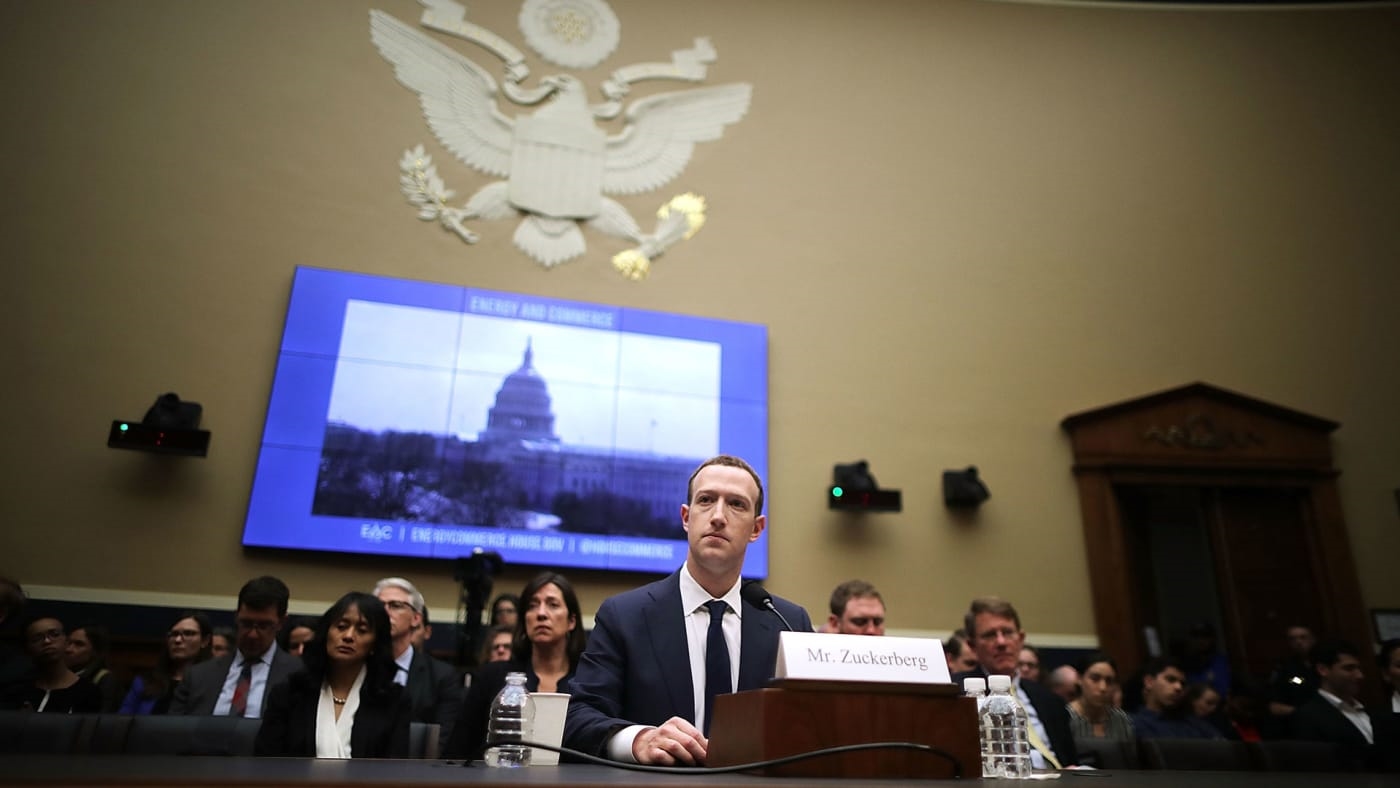Facebook Can Still Save American Democracy From Itself
Mark Zuckerberg’s testimonies before the U.S. Congress allowed Facebook to answer for its poor handling of allegations that third parties stole, sold or improperly used Facebook data presidential election. Senators pointed to a range of band-aids to enhance transparency over online ads and curtail Facebook’s usage of personal data. The Honest Ads Act, for example, would require visible disclosure of the sponsor of ads on major social media platforms, and Facebook appears to be ramping up how it gives proactive and simplified control over privacy settings to users.
The entire hearing, however, covered a very small part of what Facebook does or its significance to society and politics. That was a major missed opportunity both for Facebook and the U.S. government. As many commentators have pointed out, viral content re-posted and boosted by Facebook users themselves is significantly more far-reaching, visible and influential–ever more so once ads are demoted through filtering, blocking and labeling. This organic content can be divided into the vast majority that is normal user-generated posts and a toxic subset of deliberate “fake news” that can emanate from home or abroad. Facebook and Google have already ramped up both human teams and machine-learning tools to combat deliberately false content.
If successful, the combination of stronger regulatory and editorial policies will bring us effectively back to the world prior to 2016, when conversations about social media focused more on mainstream content, the role of influencers and the ownership of personal data. This is a far cry from those who are calling for Facebook to be “replaced” by Wikimedia or some other socially focused enterprise not driven by ad revenues. As these critics themselves know, networks are not anointed but scale through market mechanisms. The Facebook spider is not about to be ejected from the Web.
Nor is it wise to throw the baby out with the bathwater. The truth is that Facebook doesn’t define us but reflects us. We may modify our behavior when online–just as we may act differently when at school, work or at home–but this too is part of our socialization into a new layer of digital community. The Internet in general, and Facebook in particular, has done more than any other force to expand the infrastructure of human connectivity. It has also enlarged human identity to include dimensions of our inevitably global society. In this sense, we need much more Facebook, not less.
Most people, especially an older generation, surely feel their primary identity remains with their nation or ethnic group, but globalization has made it impossible to accurately explain our circumstances without reference to global conditions. The Internet helps us understand all the foreign societies and peoples we are connected to even if we don’t realize it. It helps us understand who we are better as well.
Brexit is an obvious case in point. After being fed a steady diet of “fake news” mostly from their own print media, British citizens narrowly opted for their country to leave the European Union. By the next day, “What is the European Union?” emerged as the U.K.’s most searched query on Google. A bit more advanced research on the Web might have saved them pain now being inflicted on them. Perhaps more fundamentally, as Britain’s geriatric generation heads for the “big Brexit in the sky,” in the words of novelist Mohsin Hamid, it seems foreordained that the country’s more sober and urbanized youth will work to reverse the decision in substance if not in style–and remember a hard lesson in the importance of democratic engagement in the process.
The U.S. is learning the same lesson at the same time. Elder, white, rural voters carried Donald Trump into the White House even though he lost the popular vote, a reminder that no matter how many Americans were bombarded with “fake news” or anti-Hillary ads, there is no manipulation of democracy more egregious than the very analog electoral college. Importantly, similar to the U.K., there are 80 million American millennials–as many as the number of baby boomers–and they too naturally favor digital connectivity as a way of life, and will also not be so foolish as to not turn up for the next election.
With 2 billion monthly users, Facebook has more users than all the citizens in the world who actually vote. From its role in facilitating the Arab Spring protesters in 2011 to its voter registration drives in the U.S., it has largely been a positive tool of political engagement. From the U.K. to UAE to India and Australia, Facebook is one of a number of platforms politicians and civil society groups are using to spur petitions and take policy proposals straight to parliaments to circumvent powerful special interests and lobbyists.
American Congressmen use their Facebook pages to communicate in real-time with constituents and canvas their views. Since 2016, Facebook “Town Hall”–which allows users to easily find and contact all their local political representatives–has facilitated a doubling of communication between citizens and legislators. Facebook research shows that city councils are getting more focused on crime and health services as a result of the volumes of queries tracked on those topics. This type of meta-data is precisely how Facebook can potentially be a powerful tool for progressive public policy. Ask yourself how the United States Digital Service–whose mission is to build “a more awesome government through technology”–will do anything of the sort relying on outdated census information.
A conversation of more than 2 billion people is bound to be cacophonous, but it is part of the formation of global social capital, a concept I explored in Connectography to contrast with the standard notion that our social capital must necessarily be rooted in local homogenous communities. The reality of the world today is that billions of people rely belong to meaningful transnational communities such as religious and diaspora groups, are employed through global supply chains of companies headquartered on the other side of the world or online through websites like UpWork, and support social and environmental causes across borders. If local community is the only important form of social capital, tell that to the more than 350 million people presently living outside their country of birth, more than ever in history.
Facebook is one of the key vehicles for promoting this global social capital. Indeed, since 2011, the number of international “friends” of the average Facebook user has doubled or even tripled from many countries. So too is Skype, which people use to communicate with friends and family at long distances, conduct business meetings, or learn foreign languages from overseas tutors. By whatever means and measure, global social capital is surging in both volume and value–and it will continue to as Facebook, Google, Microsoft and other companies lay down ever more fiber-optic cables on the ocean floor and launch satellites into space to reduce the cost and increase the speed of digital connectivity for all of humanity.
All of this points to how global dialogue (and knowledge) and local politics must find a way to co-exist. Draconian measures like blocking foreign ISPs from promoting content to voters (whether in America, Germany or India) would only reinforce the domestic echo chamber that enables populist ignorance in the first place. Blocking “fake news” should not come at the price of stifling the global conversation Americans need to be exposed to more than most other societies.
Scapegoating Facebook for the ills of American governance ultimately won’t get America anywhere. Filter bubbles and fake news long predate social media, whether in the form of right-wing magazines, shrill talk radio or newsstand tabloids. The solution has always been–and will always be–an educated society and responsive government focused on inclusive social democracy.
So yes, let Facebook and big tech be subjected to the highest standards of transparency and accountability, and regulated to ensure maximum privacy for users. But censuring Facebook is no excuse for not allowing a third political party, instituting mandatory voting (as numerous more advanced parliamentary democracies do), and investing in physical infrastructure to overcome the pernicious geographic filter bubbles that plague American society and deepen inequality. Social media platforms like Facebook can reinforce and even strengthen democracy in the digital age, if only we are smart enough to use them the right way.
Parag Khanna is author, most recently, of Connectography (2016) and Technocracy in America (2017).
(25)



